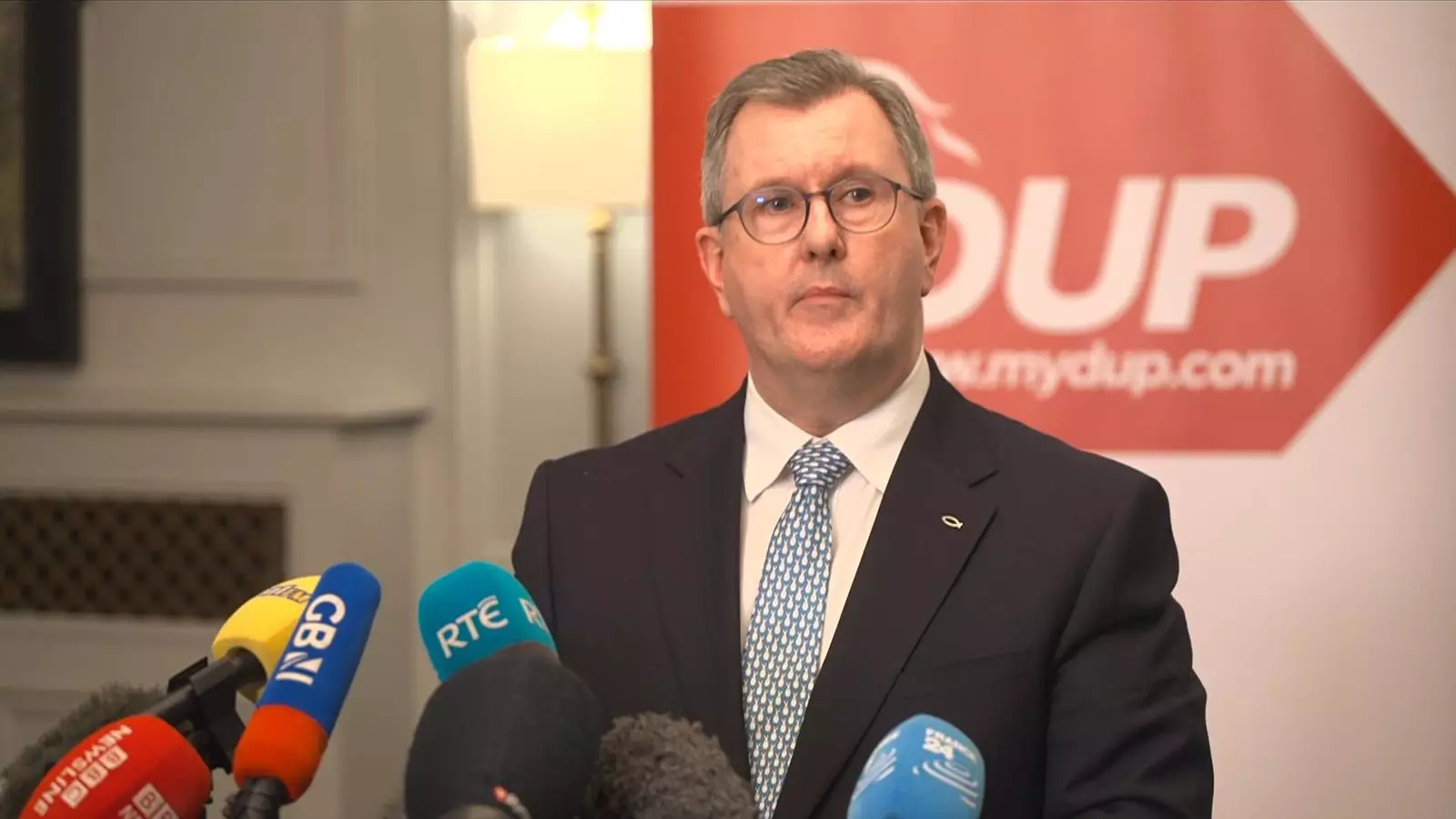The Democratic Unionist Party (DUP) has reached an agreement to restore power-sharing in Northern Ireland, pending the introduction of new legislation by the UK government. This development comes after the party’s decision to collapse the power-sharing government almost two years ago in response to trade barriers arising from post-Brexit trade arrangements between Great Britain and Northern Ireland. Sir Jeffrey Donaldson, the leader of the DUP, announced that his party was prepared to restore power-sharing in Northern Ireland once the UK government tabled and passed the necessary legislative measures. According to Sir Jeffrey, once these measures are implemented, they will serve as the foundation for the return of devolved government. He further emphasized that the deal would protect Northern Ireland’s place within the UK and, crucially from the DUP’s perspective, eliminate checks on goods movement within the UK while remaining in Northern Ireland.
Power sharing is a governance model that is employed in Northern Ireland, distinct from the system used in the rest of the UK, as a response to the prolonged conflict in the region. This model was developed as part of the Good Friday Agreement, and it differs from a traditional coalition government in that it requires both nationalist and unionist parties to share power. Unlike in an agreed coalition where multiple parties come together to form a government, in Northern Ireland, representatives from both nationalist parties, advocating for Irish unity, and unionist parties, supporting Northern Ireland’s continued union with the UK, must be involved in governance. The Northern Ireland Executive, comprising the first and deputy first ministers and their cabinet, is structured in a way that ensures equality and cooperation between both factions. A unionist and a nationalist minister must hold key positions of power, with equal authority, and one cannot be in office without the other. Moreover, certain decisions necessitate cross-community support, including the selection of the speaker and deputy speakers, as well as the allocation of the budget.
The recent agreement reached by the DUP to restore power-sharing in Northern Ireland is a crucial development that holds significant implications for the stability and functionality of the region’s government. Sir Jeffrey Donaldson has described the vote as “decisive,” expressing his confidence in the progress made during negotiations despite the lack of specific details regarding the deal at this stage. While the specific terms of the agreement are yet to be published, there is an optimistic outlook regarding the government’s ability to swiftly introduce legislation to enable the implementation of the agreed-upon measures.
Upon hearing the news, Mary Lou McDonald, the Sinn Fein leader, expressed optimism and emphasized the importance of political stability in addressing the pressing issues faced by Northern Ireland’s public services. She pledged Sinn Fein’s commitment to engaging with other parties and both governments to ensure a prompt and effective resolution. This is a clear indication that all parties involved recognize the urgency of the situation and the necessity of working collaboratively to overcome the challenges that lie ahead.
Northern Ireland Secretary Chris Heaton Harris welcomed the agreement and reaffirmed the UK government’s commitment to fulfilling its obligations as outlined in the deal. The government’s assurance provides additional confidence that the necessary legislative measures will be introduced promptly, enabling the return of devolved government to Northern Ireland.
The restoration of power-sharing in Northern Ireland represents a critical moment for the region. It signifies a significant step towards political stability and effective governance, vital for addressing the multifaceted crises faced by the public services and supporting the workers and families who rely on them. As the largest party, Sinn Fein will play a prominent role in selecting the first minister, while the DUP will choose the deputy first minister. As the parliament reconvenes, one of the first orders of business will be the election of a new speaker, as the legislature cannot proceed without one.
The agreement reached between the DUP and the UK government necessitates careful implementation and continuous collaboration to ensure its success. The path forward will undoubtedly be challenging, considering the complex issues surrounding trade arrangements, cross-border relations, and the aspirations of both nationalist and unionist factions. Nevertheless, the commitment shown by all parties involved in restoring power-sharing is encouraging and offers hope for a more stable and inclusive future for Northern Ireland.
The agreement reached between the DUP and the UK government to restore power-sharing in Northern Ireland paves the way for the return of devolved government and serves as a significant milestone in the region’s history. By dismantling trade barriers and reestablishing stability, this agreement has the potential to address the pressing issues faced by Northern Ireland’s public services and restore faith in the efficacy of its government. As the necessary legislative measures are introduced, the focus must remain on promoting cooperation, ensuring equitable representation, and working towards solutions that benefit all communities in Northern Ireland.


Leave a Reply